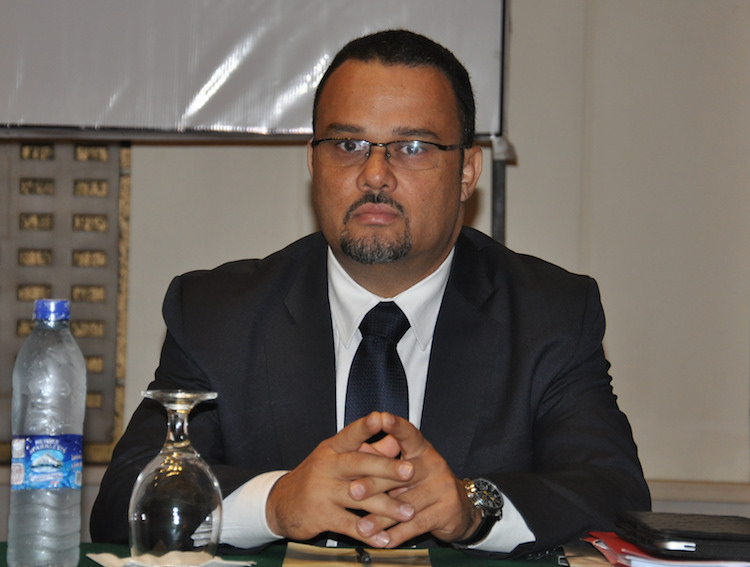Viewpoint by Jean-Luc Stalon
Jean-Luc Stalon is UNDP Country Director in Senegal. This article first appeared on January 31, 2018 on Africa Review. – The Editor.
DAKAR (IDN-INPS) – The defeat of Keynesianism in the 1980s witnessed an increase in income and social inequalities associated with the domination and monopoly of neoliberalism.
Neoliberalism advocates a free market that would promote growth through public spending cuts, deregulation of the economy, lower taxes on business, reduction of restrictions capital movement and global open markets.
Consequently, it seemed to have conquered the world through the transfer of power from the public to private sector.
The corporate drive behind free market and globalisation was intended to boost economic growth and create wealth that would gradually benefit all segments of the society through the trickle-down process. But the past three decades have shown that the prescription failed to “lift all boats”.
According to the current World Inequality Report (2018), the income of the 10 per cent richest people represent unhealthy chunk of the GDP in both advanced and developing economies with respectively 55.5 per cent in India, 47 per cent in U.S./Canada, 45.5 per cent in Russia, 41.4 per cent in China and 37 per cent in Europe. Additionally the bottom 50 per cent, by contrast, got only 12 per cent.
As the Davos summit is looking at Creating a Shared Future in a Fractured World, a cursory look at Africa reveals alarming levels of inequality.
On average sub-Saharan Africa has enjoyed sustained economic growth, primarily fuelled by a strong global demand for natural resources coupled with high commodity prices in the past two decades.
Nevertheless, World Poverty Clock shows that more than 408 million people in Africa still live in extreme poverty, with a current escape rate of – 11.8 per minute. Clearly, more people in Africa are falling into extreme poverty than are exiting.
While the agricultural sector is the highest employer (54 per cent) of Africa’s working population, its potential to lift large numbers people out of poverty is compromised by “corporate-driven” agriculture which aggravates inequality at the expense of millions of smallholder producers.
Currently, knowledge economy is at the core of any social, economic and political progress in the 21st century. Therefore, if Africa was to embark on manufacturing, it would take time to realise the expected benefits of reducing poverty and bridging the levels of inequality.
UNDP’s publication on Income Inequality Trends in sub-Saharan Africa (December 2017) shows that Africa remains the global epicentre of income inequality as the continent hosts “10 of the 19 most unequal countries” in the world.
Inequality decelerates economic growth, impedes poverty reduction efforts, and thwarts the achievement of Sustainable Development Goals (SDGs).
Thus, proactive interventions, initiatives that anticipates and contain inequality are a priority to all. To this end, addressing inequality in Africa is an imperative and not a choice.
Various actors, governments, corporates and civil societies need to urgently embark on a comprehensive plan to build a human economy. Towards this objective we should emphasise the following three policy options.
First, African leaders need to emulate some of the Developmental State model lessons from Asia and Latin America to play a large, active and significant leadership role in the economy.
Clear and shared vision; highly capable professional bureaucracy; accountable socio-economic services; growth-focused education system; and fighting corruption are some of the key hallmarks of a developmental state.
Second, Africa needs a paradigm shift in its production and consumption patterns. Spiralling inequality on the continent informs us of the limits of commodity-led (primarily natural resources) economic growth financing model.
Hence, it is important for sub-Saharan Africa to seize emerging opportunities, through value addition, economic diversification, industrial development, and establishing conducive climate for business.
Third, the core focus of sub-Saharan Africa should be the promotion of human development in ways that it ensures that opportunities for jobs are matched with skills. That will call the continent to go beyond just sending people to school. It will need reskilling and retooling to create and engage into businesses and the real economy.
The SDGs provide the avenue for sub-Saharan Africa to address rampant inequality through improving rural incomes; creating social safety nets and cash transfers; putting in place an education system that improves attitude and behaviour; and addressing emerging urbanisation and migration issues.
Inequality is an economic and social liability that keeps poor people poorer and suffocates and stifles their potential; undermines poverty reduction; and drives enduring governance crisis.
Coupled with age-old forms of systematic exclusion and discrimination based on gender, race, and caste, it exacerbates social disorder such as youth unemployment, gender-based violence, migration, criminality, and displacement.
It also denies people their dignity and their voice, which deepens social discontent, frustrations, radicalisation and likelihood of more conflicts.
In conclusion, the neoliberal attempt to increase the size of the economic pie without ensuring that the benefits of growth are better shared and reaching poor segments of the society will lead to unprecedented political, economic and social disrupt.
Addressing persistent inequality calls for an international coalition to push reforms that strengthen global governance institutions; establishes a new social contract that promotes shared prosperity, inclusive growth, social protection, and advances a globalisation that is accompanied with some forms of compensation that would allow the most vulnerable to find their place and their share into the new world, which I hope will turn to be more human centred. [IDN-InDepthNews – 25 February 2018]
Photo: Jean-Luc Stalon, UNDP Country Director in Senegal (in September 2012). Credit: UNDP
IDN is flagship agency of the International Press Syndicate.
facebook.com/IDN.GoingDeeper – twitter.com/InDepthNew

